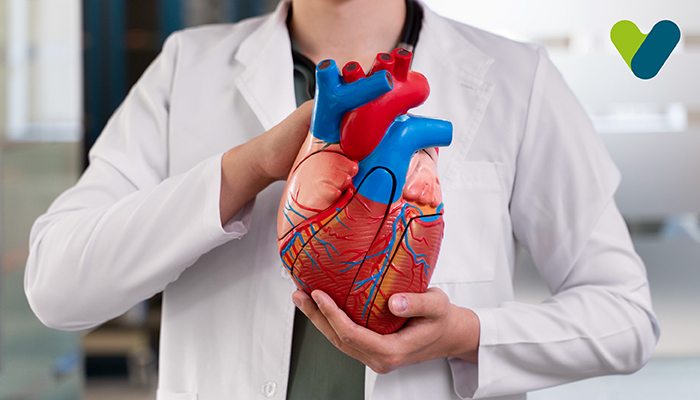Introduction
Jack is a very active sports student in his class. One day, he noticed that his arms and legs had swollen up in surprise. He could not understand the exact reason behind this; he suddenly experienced a shortage of breath and increased heart rate after a while. Jack's breathing problem occurred so much that he became senseless after a while. His parents rescued him from the room and were admitted to the hospital. After an examination, the doctor found out that he had accumulated water in heart.What is the accumulation of fluid in the heart?
The formal name is pericardial effusion, where fluids assemble around the heart between the pericardium and lining of the heart. This accretion of fluid is abnormal and unexpected.What does it affect?
Pericardial effusion can be the result of diseases that develop out of different conditions. Water in heart can be either temporary or chronic, lasting for an extended duration.Long-term repercussions of pericardial effusion
The consequences of this disease depend upon the size of accumulation and rate of growth. It can only be treated if the condition remains within control. Cancer can result in pericardial effusion, which must be diagnosed immediately to avoid the serious issue.If the water in the heart is stored around the pericardium, it may cause cardiac arrest as they interrupt the proper functioning of the heart. It will result in a vulnerable condition of the patient.
Attributes that can be observed
Persons who are having pericardial effusion under controlled conditions do not have any severe issues to worry about. It is discovered on chest x-ray or echocardiogram. There are no symptoms for small accumulation of fluid. However, if the quantity increases, it will squeeze the nearby organs like the lungs and stomach making them misfunction. A person can also experience diastolic heart failure due to excess compression around the heart, due to which the heart could not relax properly.Some of the common symptoms include chest pain or shortness of breath. If the stomach gets affected, then abdominal problems will arise. Understanding if a person suffers cardiac arrest will be noticeably visible as a change in mental stability or shock.
Cardiac tamponade can be referred to in this situation where a heart is barred from functioning properly, which can be life-threatening in many cases.
What are the reasons behind pericardial effusion?
Many of the possible causes result in this disease, including growing infection or rheumatoid arthritis. If a person has undergone too much heart surgery, it is impossible to survive from pericardial effusion easily. If the nitrogen concentration in the blood increases, the kidney will fail to perform efficiently, resulting in abnormal heart rhythm.How to find pericardial effusion
It can be discovered through chest x-ray and CT scan of the chest. With the proliferation of medical technologies, MRI of the heart can also be done to examine heart issues in detail. Echocardiography is assisted with pericardiocentesis, where the fluid from the heart is taken out using a medical needle and then examined in the laboratory to understand the cause.Treatment of pericardial effusion
After examining the water in heart in the medical laboratory, the seriousness is computed after knowing the reason for effusion. If the symptoms go on increasing, the patient requires immediate surgery. But before surgery, the nature of the fluid must be known. It either consists of protein or water. After determining the types of fluid, doctors start the treatment. It is essential to note down the medical history of the patient and their medication.Work of the management
NSAIDs are a type of drug, which are used to treat pericardial effusion. This drug consists of aspirin. Medications such as diuretics can be used to treat certain heart diseases. Antibiotics, on the other hand, are excellent in curing pericardial effusion. If it is related to cancer, then radiation therapy works significantly.Ultrasound-guided pericardiocentesis is an efficient method used by medical management to cure pericardial effusion. Under anaesthesia, VATS are also performed in removing fluid from the heart, technically using a minimally invasive procedure. It does not let the fluid reaccumulate in the area.
